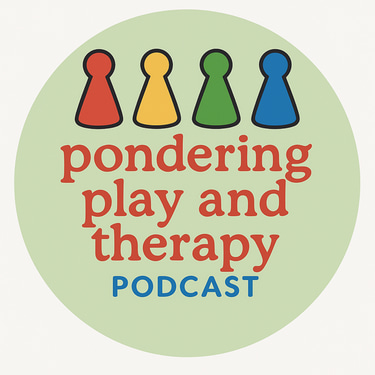Understanding Child Against Parent Aggression: Insights from Matt's Journey
Child Against Parent Aggression (CAPA) is a complex and sensitive issue that many families face in silence. In a recent episode of "Pondering Play and Therapy," Philippa sat down with Matt, a senior practitioner for Capa First Response, to explore this challenging behaviour and ponder the support available for affected families.
Philippa
8/1/20252 min read


What is Child Against Parent Aggression?
CAPA, also known as Child to Parent Abuse, encompasses behaviours where children use violence and aggression against parents or caregivers. This can range from physical violence to verbal and financial aggression. Matt highlights that this is not an occasional tantrum but rather a sustained pattern can that leave parents feeling like they are walking on eggshells, scared of their child's reactions.
The Journey of Understanding and Support
Matt's career spans over a decade of supporting young people and families in various settings, from schools to healthcare environments. His expertise in community therapy, particularly through the Tavistock and Portman Foundation, has been instrumental in addressing aggression and restoring family relationships. Community therapy, as he explains, is about involving the community in therapeutic processes, facilitating understanding and healing from shared experiences.
The Role of Capa First Response
CAPA First Response, founded by Jane Griffiths, tackles the postcode lottery of support services. Operating entirely online, this organisation offers invaluable resources and drop-in services accessible to anyone in the UK. Their aim is to provide parents with early support to rebuild connections with their children and prevent the escalation of aggressive behaviours.
Challenges Faced by Families
Families dealing with CAPA often experience intense guilt and shame, exacerbated by unhelpful advice from well-meaning friends and professionals. Adoptive families can feel particularly isolated due to the complex emotions involved. Matt empathises with these experiences, emphasising the need for non-judgmental support that helps rebuild trust and communication within the family.
Emphasising Play and Connection
Both Matt and Philippa agree on the power of play in rebuilding relationships. Playfulness offers a change of pace from the constant vigilance parents might feel. Setting aside time for playful interactions allows parents to communicate safety and trust nonverbally, which is crucial for children who feel unsafe.
Supporting Neurodiverse Families
CAPA First Response is committed to supporting neurodiverse families, who represent a significant portion of those they help. Neurodivergent children may respond with aggression due to the overwhelming demands on their processing abilities. Matt considers the importance of understanding these needs and responding with compassion and tailored support strategies.
A Call to Reach Out
For families struggling with CAPA, the key takeaway is to seek help early, without shame. CAPA First Response offers a simple "Get in Contact" button on their website for parents ready to begin the journey towards healing. Matt's work, alongside the organisation's efforts, underscores the importance of hope and small steps toward positive change.
For more insights and support resources, listeners can also explore the CAPA First Response podcast and engage with a community dedicated to understanding and supporting families in distress. Through open conversations and proactive support, families can navigate the challenges of CAPA and find a path to healing and connection.
